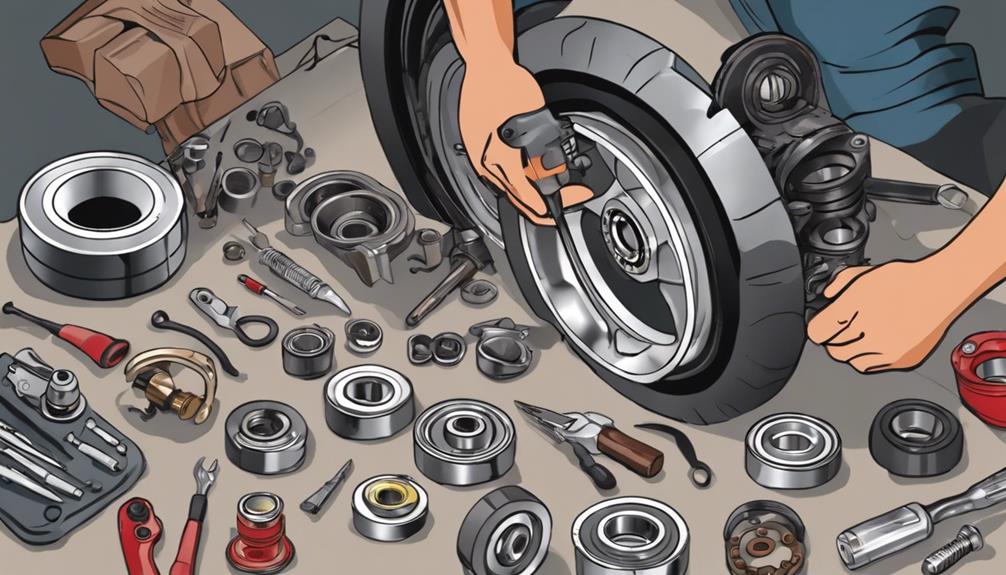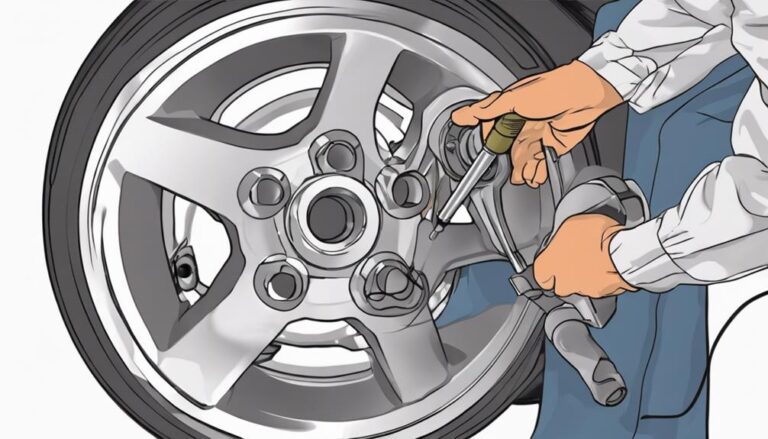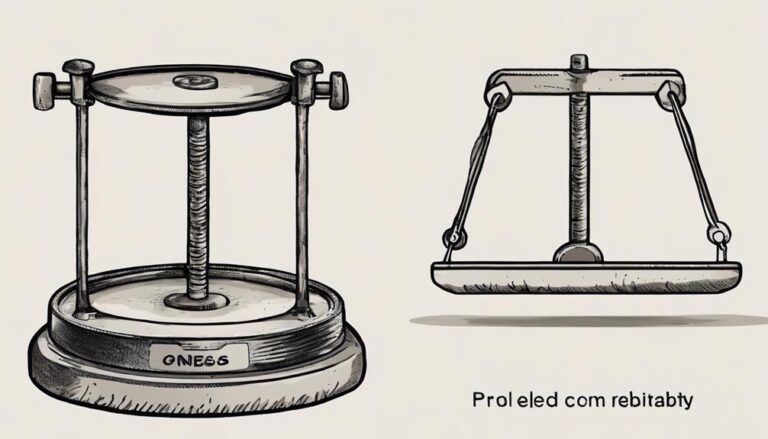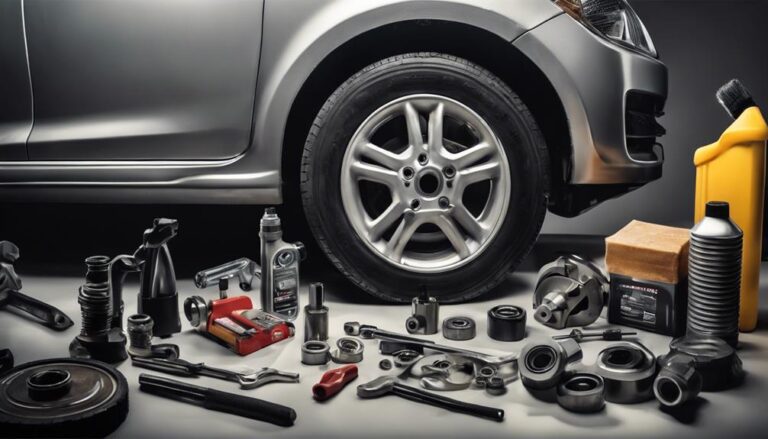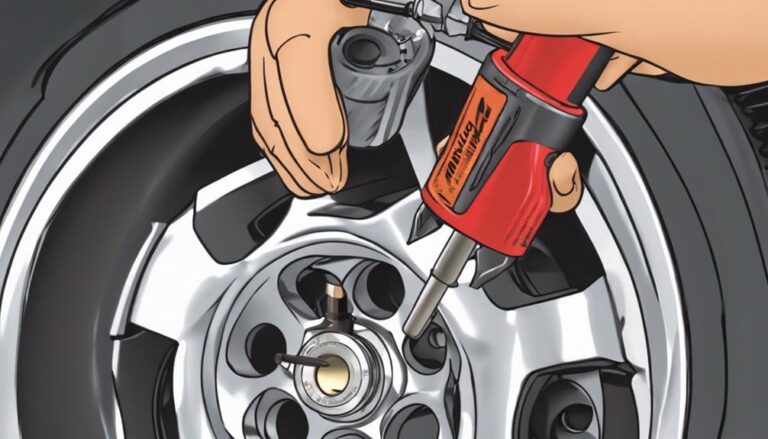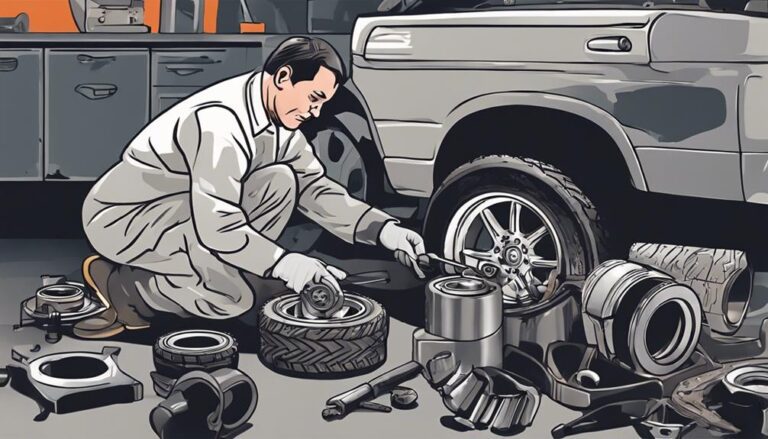Top 10 Tips for Timely Wheel Bearing Maintenance
Are you aware of the critical role wheel bearings play in the smooth operation of your vehicle?
Ensuring proper maintenance can save you from costly repairs and potential safety hazards.
Implementing these top 10 tips for timely wheel bearing care can help you avoid unexpected breakdowns and maintain a safe driving experience.
Key Takeaways
- Regular maintenance prevents costly repairs and ensures road safety.
- Proactive monitoring saves on repair bills and prevents breakdowns.
- Proper greasing with high-quality grease extends bearing lifespan.
- Promptly address signs of worn bearings to maintain performance and safety.
Importance of Timely Bearing Maintenance
To maintain peak performance and safety of your vehicle, timely bearing maintenance is essential. Wheel bearings play a critical role in the smooth operation of your vehicle. Neglecting these components can result in costly repairs and compromise your safety on the road. Regular maintenance of wheel bearings is essential to prevent issues such as premature wear, excessive heat buildup, and eventual failure. By following recommended maintenance schedules, you can guarantee maximum performance and longevity of your wheel bearings.
Proper maintenance helps to identify potential problems early on, allowing you to address them before they escalate into major issues. This proactive approach not only saves you money in the long run but also minimizes the risk of accidents caused by wheel bearing failure. By staying vigilant and adhering to maintenance guidelines, you can enjoy a smoother and safer driving experience. Remember, the health of your wheel bearings directly impacts the overall performance and safety of your vehicle.
Regular Inspection Saves Costs
Regularly inspecting your wheel bearings is important in saving costs by catching potential issues early on. By conducting cost-effective maintenance checks, you can prevent major repair bills down the line.
Stay proactive and attentive to signs of wear, noise, or vibration to address wheel bearing problems promptly.
Cost-Effective Maintenance Checks
Implementing proactive maintenance checks for wheel bearings can lead to substantial cost savings in the long run. Regular inspections help identify issues early, reducing repair costs by up to 50%. By adhering to a consistent maintenance schedule, you can avoid unexpected breakdowns and costly repairs, ensuring best performance and extending the lifespan of your wheel bearings. Early detection of bearing wear through inspections not only prevents damage to other vehicle components but also contributes to significant long-term cost savings. Stay ahead of potential problems by conducting routine checks and maintenance tasks, ultimately saving you time and money in the future.
| Maintenance Check | Cost Savings (%) | Benefits |
|---|---|---|
| Regular Inspections | Up to 50% | Early issue detection |
| Timely Maintenance | – | Avoid breakdowns |
| Consistent Schedule | – | Best performance |
| Early Wear Detection | – | Prevents damage |
Preventing Major Repair Bills
Regular inspection of wheel bearings is essential for preventing major repair bills by detecting issues early on. Neglecting maintenance can lead to costly damages to the wheel hub and surrounding components. To avoid unnecessary expenses, follow these tips:
- Monitor Wheel Hub Temperature: Check for excessive heat around the wheel hub area, as this could indicate friction and potential bearing issues.
- Listen for Unusual Noises: Pay attention to any grinding or rumbling sounds while driving, as these could signal worn-out wheel bearings that need immediate attention.
- Check for Wheel Wobbling: If you notice the wheel wobbling or vibrating, it could be a sign of loose or damaged wheel bearings that require prompt inspection and repair.
Proper Greasing for Longevity
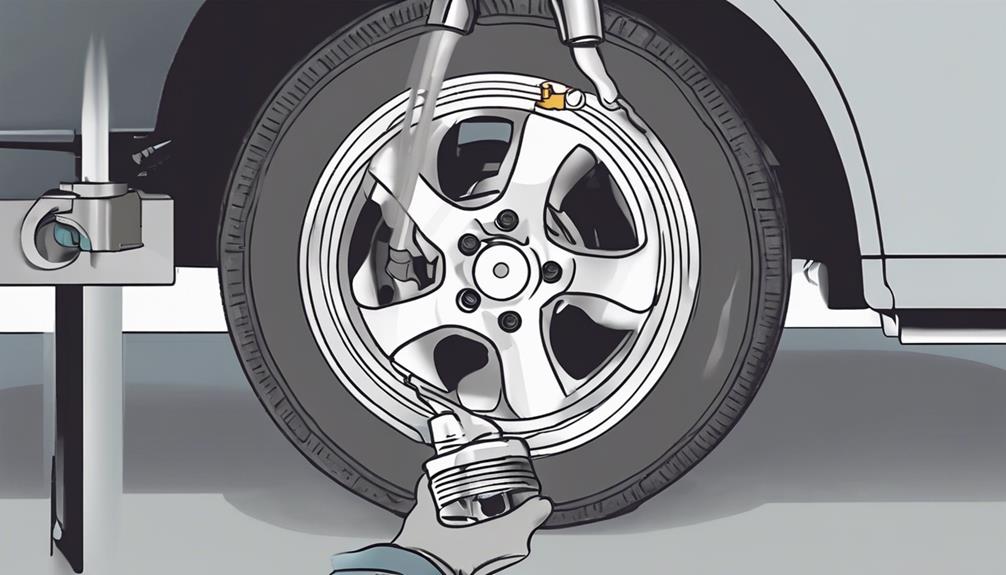
To confirm prolonged wheel bearing lifespan, meticulous application of high-quality lithium-based grease is essential. Greasing wheel bearings is important as it reduces friction, heat, and wear, ultimately extending the bearings' longevity.
When greasing, it's vital to use a high-quality lithium-based grease specifically designed for wheel bearings. Make sure the grease is applied evenly, filling all spaces within the bearing assembly to guarantee ideal performance. Be cautious not to over-grease, as this can potentially lead to seal damage and contamination.
Always follow the manufacturer's recommendations regarding the amount of grease needed for your specific wheel bearings. Establishing regular greasing intervals is key to maintaining the bearings' functionality and preventing premature bearing failure.
Signs of Worn Bearings
When diagnosing potential wheel bearing issues, listen for abnormal noises or feel for unusual vibrations while driving. Worn wheel bearings can manifest through various signs that indicate the need for maintenance:
- Audible Cues: Worn wheel bearings may produce a humming or growling noise while in motion, especially at higher speeds. These sounds can be an early indication of bearing wear and shouldn't be neglected.
- Vibrational Warnings: Pay attention to vibrations felt in the steering wheel or vehicle floor. These vibrations can be a key indicator of worn wheel bearings that are causing instability in the wheel assembly.
- Tire Wear Patterns: Look out for uneven tire wear, such as scalloping or cupping. These irregular wear patterns can be a result of compromised wheel bearings affecting the alignment and rotation of the tires.
Being aware of these signs and addressing them promptly can help prevent further damage to your wheel bearings and ensure a smoother driving experience.
Timely Replacement Is Crucial
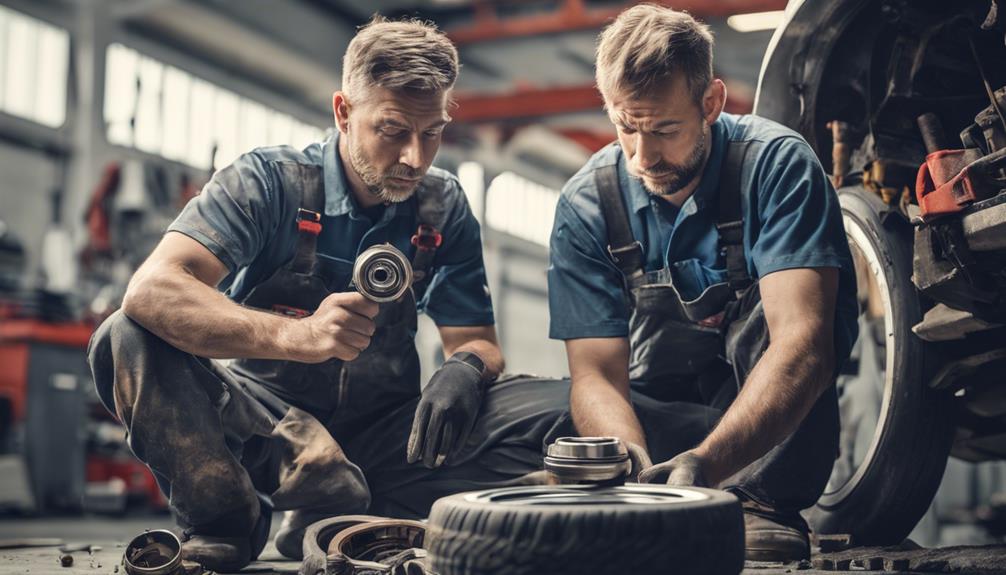
When it comes to wheel bearings, timely replacement is paramount. Ignoring signs of wear can lead to safety hazards and vehicle performance issues.
Make sure to adhere to maintenance schedules and manufacturer guidelines to keep your wheel bearings in peak condition.
Importance of Replacement
Ensuring timely replacement of wheel bearings is essential to prevent costly repairs and maintain peak vehicle performance. Neglecting this vital maintenance task can result in increased friction, heat buildup, and premature wear, ultimately leading to potential safety hazards and decreased efficiency.
To highlight the importance of timely replacement, consider the following:
- Cost-Effective: Timely replacement helps avoid expensive repairs associated with damaged wheel bearings.
- Safety: Regular replacement reduces the risk of wheel detachment and alignment issues, ensuring a safer driving experience.
- Performance: Following manufacturer recommendations for replacement intervals optimizes vehicle performance and longevity, enhancing overall efficiency.
Signs of Wear
Detecting signs of wear on your wheel bearings is important for ensuring timely replacement and maintaining peak vehicle performance. Unusual noises like grinding or humming can be indicative of worn wheel bearings. Keep an ear out for these sounds, as they often signal the need for immediate attention.
Additionally, if you notice excessive play or wobbling in the wheel, it could be a sign of a failing bearing. Uneven tire wear patterns, such as cupping or scalloping, may also point to potential wheel bearing issues. Vibrations felt in the steering wheel or vehicle floor shouldn't be ignored, as they could be a result of worn wheel bearings.
Timely replacement of compromised wheel bearings is critical to prevent further damage and guarantee your safety on the road.
Professional Installation Matters
Professional installation of wheel bearings by trained professionals is essential for maintaining peak performance and safety standards. When it comes to the intricate components of your vehicle, precision is key in ensuring that the wheel bearings function at their best. Here are three reasons why professional installation matters:
- Proper Alignment: Trained professionals have the expertise to align the wheel bearings correctly, preventing issues such as uneven wear and tear that can compromise the performance of your vehicle.
- Prevention of Damage: Improper installation techniques can result in premature bearing damage. By following manufacturer guidelines and torque specifications, professionals help prevent issues like over-torquing or incorrect mounting, which can lead to costly repairs down the road.
- Enhanced Safety: Professional installation reduces the risk of wheel bearing failure while driving, which could result in safety hazards on the road. By entrusting the installation to reputable mechanics or technicians, you prioritize your safety and the longevity of your vehicle.
Impact of Driving Conditions

When driving in varying terrains, your wheel bearings endure different levels of stress. The weather conditions you face can also impact the performance and longevity of your bearings.
Additionally, the speed at which you drive and the load you carry can contribute to the wear and tear on your wheel bearings.
Driving Terrain Effects
Driving on different terrains directly impacts the wear and lifespan of wheel bearings. When considering driving terrain effects on wheel bearings:
- Rough Terrain: Potholes and bumps can accelerate wear, reducing bearing lifespan.
- Wet Conditions: Muddy and wet terrains increase the risk of contaminants entering, potentially causing damage.
- Extreme Temperatures: Hot or cold climates can affect lubrication and overall performance.
Being mindful of these factors allows for better maintenance practices to guarantee wheel bearing performance. Regular checks and appropriate upkeep tailored to the driving terrain can greatly extend the life of wheel bearings, providing smoother and safer rides.
Weather Influence on Bearings
In challenging weather conditions, the performance of wheel bearings can be greatly impacted by the presence of contaminants and exposure to extreme temperatures. Harsh driving environments such as rain, snow, and mud can introduce particles that compromise the integrity of wheel bearings. Additionally, extreme temperatures can disrupt the lubrication properties and sealing effectiveness of wheel bearings, leading to premature wear. High humidity levels exacerbate the risk of corrosion, further reducing the lifespan of wheel bearings.
When driving on rough or uneven terrain, the stress on wheel bearings is heightened, necessitating more frequent checks and maintenance. To uphold best wheel bearing function, regular upkeep in varying weather conditions is essential. Stay vigilant to secure the longevity and reliability of your wheel bearings.
Speed and Load Impact
The impact of driving conditions on wheel bearings intensifies with higher speeds and heavier loads, potentially leading to premature wear and failure. Here are three key points to take into account:
- Stress Accumulation: Higher speeds and heavier loads put increased stress on wheel bearings, causing them to wear out faster.
- Extreme Conditions: Driving in challenging environments such as off-road terrain or high temperatures can expedite the deterioration of wheel bearings.
- Maintenance Importance: Proper maintenance and lubrication are essential to counteract the effects of speed and load on wheel bearings.
Understanding these factors can aid in adjusting maintenance practices for the best wheel bearing performance. Regular inspections for wear and damage can prevent costly repairs and ensure safe driving conditions.
Choosing Quality Replacement Parts

When selecting replacement parts for wheel bearings, prioritize quality to secure performance and longevity. Reputable manufacturers offer replacement bearings that adhere to OE specifications, ensuring a proper fit and function for your vehicle's hub. Opting for quality replacement parts not only enhances durability and reliability but also reduces the risk of premature bearing failure. Top-quality materials used in these replacement parts contribute to their longevity, providing you with peace of mind while on the road. To help you make an informed decision, consider the following comparison table showcasing some reputable brands known for their high-quality wheel bearing replacement parts:
| Brand | Material | Features |
|---|---|---|
| Timken | Steel | OE Matched |
| SKF | Stainless Steel | High Load Capacity |
| NSK | Ceramic | Corrosion Resistance |
DIY Maintenance Tips
Inspect wheel bearings regularly for wear or damage to detect potential issues early and guarantee peak performance. Keeping your wheel bearings properly maintained is critical for the overall health and longevity of your vehicle.
Here are three DIY maintenance tips to help you make sure your wheel bearings are in top condition:
- Clean and Repack: Regularly clean and repack your wheel bearings with high-quality grease as recommended by the manufacturer. This will help maintain proper lubrication and prevent premature wear.
- Check Preload: When installing wheel bearings, make sure to check for proper preload. Incorrect preload can lead to premature failure of the bearings, affecting the performance of your vehicle.
- Torque Specifications: Always follow the correct torque specifications when tightening wheel bearing components. This will help prevent issues such as overloading or uneven stress on the bearings, making sure they function as intended.
Schedule Preventative Maintenance
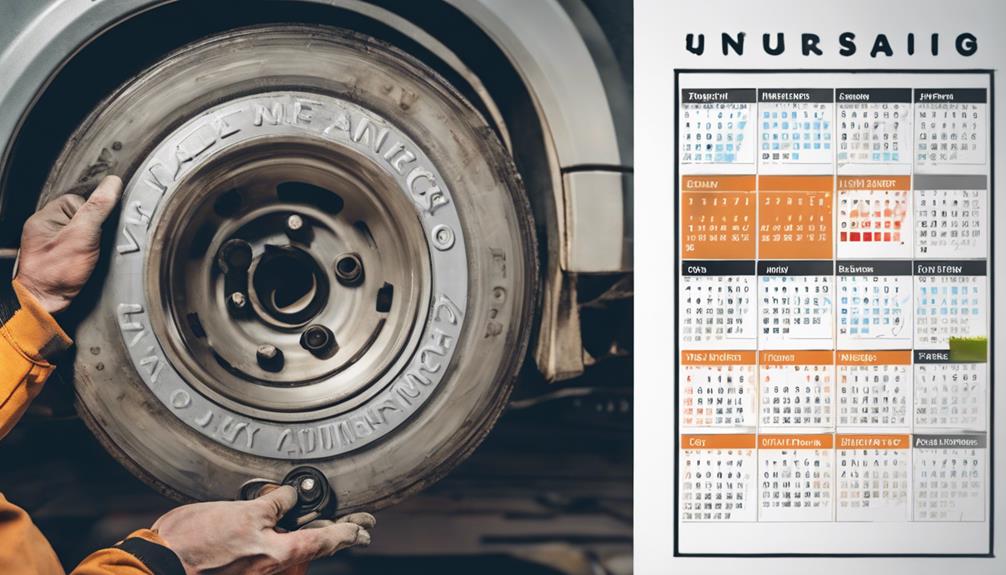
To guarantee peak performance and longevity of your vehicle, make sure to stick to a regular preventative maintenance schedule for your wheel bearings. Schedule wheel bearing inspections every 30,000 to 50,000 miles to catch issues early. Regularly check for signs of wear and tear, such as noise, vibration, or uneven tire wear. Follow manufacturer recommendations for bearing maintenance intervals. Make sure proper lubrication of bearings to prevent premature failure. Timely maintenance can extend the lifespan of wheel bearings and prevent costly repairs.
| Maintenance Task | Frequency |
|---|---|
| Wheel bearing inspections | Every 30,000-50,000 miles |
| Check for signs of wear | Regularly |
| Follow manufacturer guidelines | As recommended |
| Lubrication of bearings | Regularly |
| Timely maintenance | Extends lifespan |
Frequently Asked Questions
How Can I Make My Wheel Bearings Last Longer?
To make your wheel bearings last longer, guarantee proper lubrication techniques are applied. Regularly check for signs of wear and promptly address any issues. Following manufacturer guidelines for installation and avoiding harsh driving conditions are vital steps for longevity.
How Do You Maintain Wheel Bearings?
To maintain wheel bearings, choose the right grease for lubrication. Inspect for wear regularly, use quality parts, follow proper installation steps, and avoid rough driving. Properly lubricated bearings last longer, ensuring smooth operation and preventing premature failure.
How Do You Extend the Life of a Wheel Bearing?
To extend the life of a wheel bearing, make sure proper lubrication techniques are followed. Maintaining correct lubrication levels and using quality grease will reduce friction, heat, and wear, ultimately prolonging the bearing's longevity and performance.
What Is the Basic Maintenance Procedure for a Bearing?
To properly maintain a bearing, you should first guarantee clean surfaces and proper lug nut conditions. Check ABS cable attachment and suspension parts. Regularly rotate tires for even wear. Essential is grease application to promote longevity.
Conclusion
To sum up, maintaining your wheel bearings is like providing your vehicle with a protective shield against the wear and tear of the road. By following the top 10 tips for timely maintenance, you can guarantee smooth and safe driving for miles to come.
Remember, a well-maintained wheel bearing is the unsung hero of your vehicle's performance – so don't overlook its importance!

